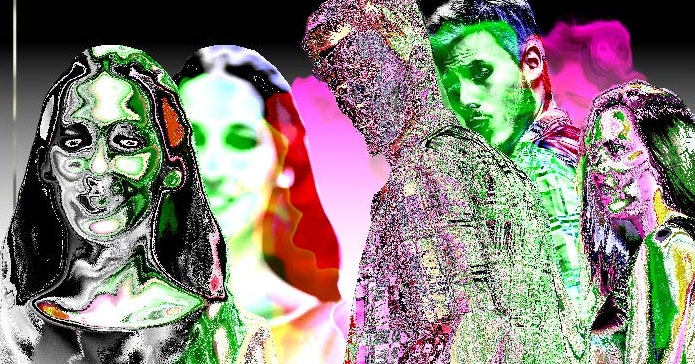AI Is Rewriting Meme History
Pretty much every online lurker knows the image: A man gawks at a passing woman making the kind of “How you doin’?” face that would make Joey Tribbiani blush. Ever since it landed in 2017, the “distracted boyfriend” meme, which took that stock photo and projected scenarios onto it, has been seared into the internet’s collective consciousness. Now, artificial intelligence is rendering the memory of that viral moment fuzzy, along with the memories of dozens of other memes.
Often called “time traveler” videos, particularly on TikTok, the AI-generated clips currently bouncing around the internet take well-known memes and add context that wasn’t there before. In some cases, they “interrupt” the action; sometimes they include a haunting specter. In the “distracted boyfriend” animation, which was posted on X (formerly known as Twitter) last month, the boyfriend is seen turning around and following the girl walking in the opposite direction while his girlfriend stands nearby.
The clip was made using Luma Dream Machine, an AI model that takes source images and text prompts and creates high-quality, realistic videos. Within days of its release, social media users started to borrow images and frames from recognizable memes to create visuals that test Dream Machine’s generation abilities. The results proved that while the AI model isn’t flawless, it does have the ability to rewrite internet history by altering the web’s most enduring images.
As Dream Machine spread, some common visual limitations and faults of generative AI showed up in the model’s output, such as unnatural human depictions and objects morphing. While some social media users found the visuals to be scary and concerning in terms of AI’s acceleration and its potential to create misinformation, others found amusement in the model’s incoherent errors.
While it may be disconcerting to think that one of these AI-altered memes could go so viral it eclipses the image that inspired it, Know Your Meme editor Phillip Hamilton believes that the trend doesn’t pose a huge threat to digital media preservation. Rather, it’s the ubiquity of the originals that makes the reboots work.
“Generally, everyone knows the context,” Hamilton says, referring to the viral images being edited. “The iconicness of the video is at the core of the trend … the core of the [time-traveler] meme is that popular thing being stopped.”
The nature of meme-sharing on social media revolves around user interaction with memes. Since most are the result of editing to begin with, editing memes with AI is fair game, Hamilton says.
Luma boasts that Dream Machine can generate 120 frames of high-quality video in under 120 seconds, despite facing significant delays due to extremely high demand. The speedy generation, along with the availability of a “free” tier that allows users to generate up to 30 clips per month, have made Dream Machine much more accessible than its OpenAI counterpart, Sora, which, despite being revealed in February, has not yet been released to the public so far.
